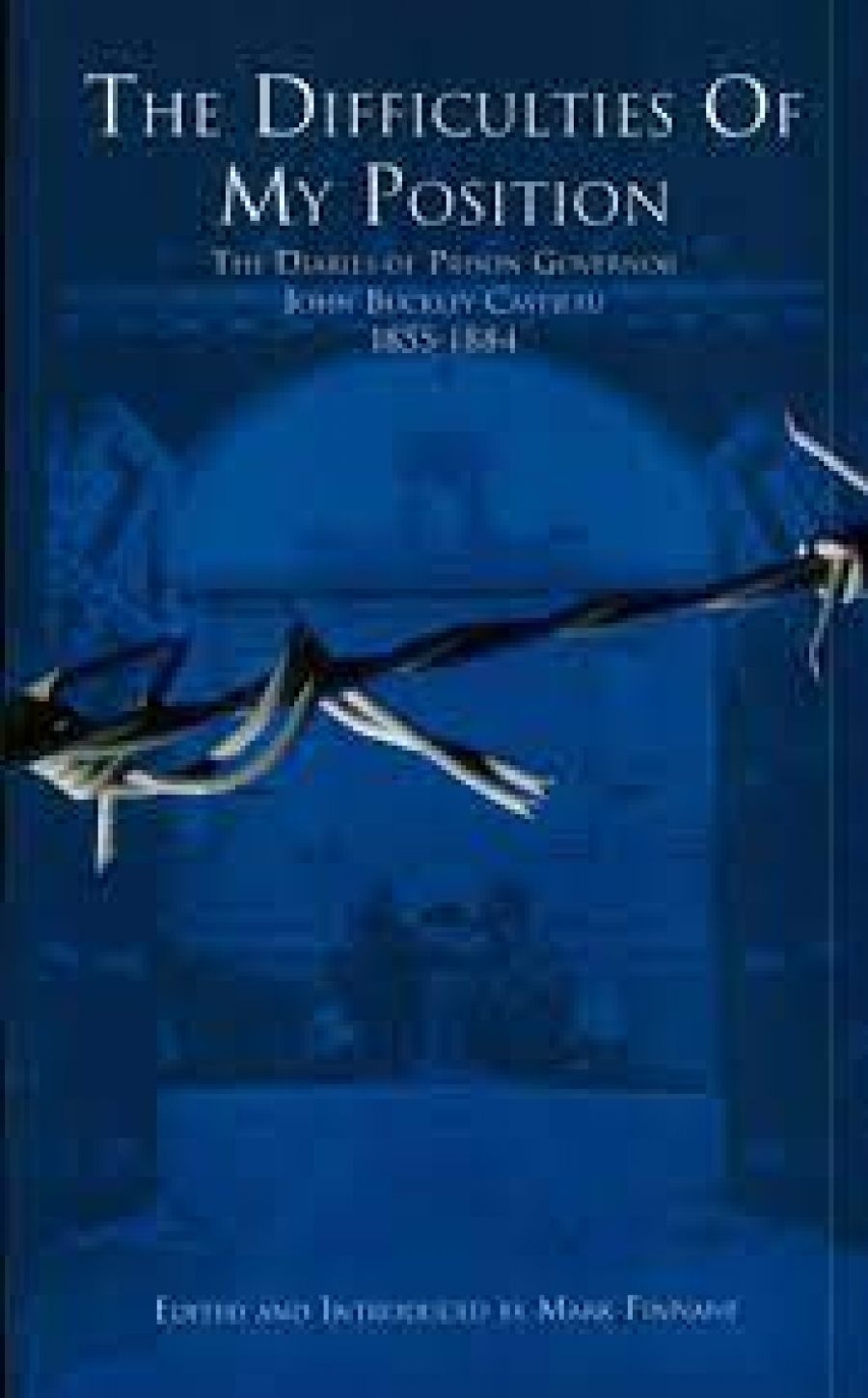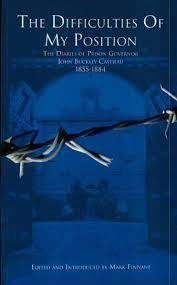
- Free Article: No
- Contents Category: Diaries
- Review Article: Yes
- Online Only: No
- Custom Highlight Text:
Both a scholarly resource and a good read, Castieau’s diaries, effectively edited, enliven and enrich our sense of colonial Melbourne. Castieau’s modest standing adds to the diaries’ significance as they record the dailiness of life, combining the public and the private: work, life around town and ‘the domestic minutiae of everyday life captured in his relentless record’. What makes Castieau exceptional are the span and detail of the diaries: ‘His workaday life does not obscure the more important issues of colonial life – getting on, enjoying oneself, establishing a reputation, being part of the world.’
- Book 1 Title: The Difficulties of My Position
- Book 1 Subtitle: The diaries of prison governor John Buckley Castieau 1855–1884
- Book 1 Biblio: NLA, $29.95 pb, 324 pp
- Book 1 Cover Small (400 x 600):

- Book 1 Cover (800 x 1200):

Crime and punishment was one of the century’s main public concerns. Prisoners write diaries, but how many prison governors do, asks Finnane? Castieau has become ‘almost invisible’ in recent cultural histories, but he maintained a complex relationship with artistic and social worlds. Cultivation of the press was part of his job because prison administration was open to public scrutiny. Hence Castieau records that journalists and members of the legal profession were invited to witness floggings, briefly described; also present at times were ‘the usual knot of connoisseurs’ and ‘quasi-gentlemen’. Castieau speculated that male Melburnians would have patronised gladiatorial sports. Castieau met Marcus Clarke through a flogging: ‘‘The Peripatetic Philosopher’ [Clarke’s title as columnist] met me in the street this morning and came to the gaol to see the punishment this afternoon. I was glad to see he did not believe much in its efficacy as a rule though he believed flogging could occasionally be resorted to with advantage.’ Clarke’s observation of a flogging unexpectedly adds to the knowledge of his novel’s sources. The two men became friends through the Yorick club, and there are fascinating glimpses of Clarke interspersed with those of many contemporaries, including Judge Redmond Barry.


Comments powered by CComment